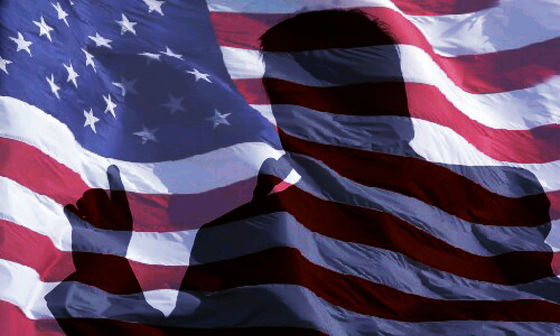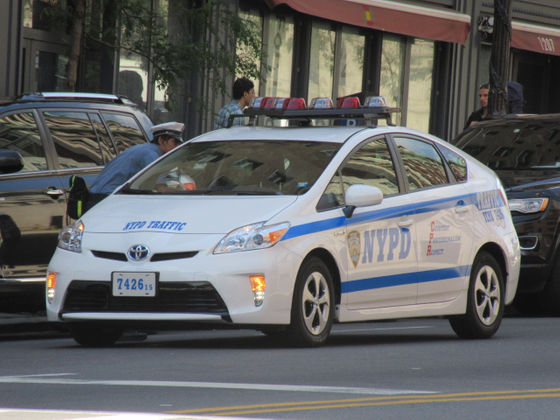Foreign media points out that the reason American cars aren't on Japanese roads is 'simply because of a lack of quality'

by
President Donald Trump has repeatedly blamed unfair tax systems and trade practices for the lack of sales of American-made cars in Japan, but Bloomberg has said that's a false 'myth.'
The Japan Tariff Myth That Just Won't Die in Trump's Head - Bloomberg
https://www.bloomberg.com/opinion/articles/2025-04-07/the-japan-tariff-myth-that-just-won-t-die-in-trump-s-head
In a speech in early April 2025, President Trump said, 'Toyota sells one million cars in the United States, but General Motors and Ford hardly sell any cars in Japan. None of our companies are allowed to expand into other countries.' After a telephone conversation with Prime Minister Shigeru Ishiba, he expressed his dissatisfaction on social media, saying, 'They have treated America very badly in terms of trade. They don't take our cars, but we take millions of theirs.'
Deputy Chief of Staff Stephen Miller also posted on X (formerly Twitter) 'Why are American roads filled with European and Japanese cars, but their roads are empty? America provides them with defense and security?' he asked, concluding, 'Our markets are flooded with our allies' cars, while our allies close their markets to our cars. This is all by design.'
It is true that American cars are not selling well in Japan. According to the ' (PDF file) FY2024 New Import Vehicle Registrations (Flash Report) ' announced by the Japan Automobile Importers Association on April 4, 2025, GM's sales in Japan in FY2024 totaled about 1,000 units, including 518 Chevrolets, 468 Cadillacs, and 23 GMCs. Ford's sales also only reached 220 units.
However, it is a misunderstanding that this is due to an unfair tax system. Bloomberg points out, 'Even before the Trump administration took office, Japan was imposing tariffs lower than the 2.5% tariff that the US imposes on Japanese car imports. How much lower? In fact, zero. Japan has not imposed tariffs on car imports since 1978. So the source of President Trump's dissatisfaction is much simpler: the quality of American cars is not good enough.'

Furthermore, when asked what exactly is lacking, Bloomberg explains, 'American companies simply couldn't produce cars that suited the tastes of Japanese consumers. Japanese drivers want compact, fuel-efficient vehicles that are safe, reliable and cost-effective. Meeting that demand is a challenge for American companies, let alone most domestic manufacturers. That's why one in every two cars sold in Japan is a Toyota.'
In addition to these factors, the Japanese auto market is dominated by minicars that are not manufactured by American manufacturers. In contrast, popular American cars are too large for Japanese roads and parking lots, and some models of the best-selling Ford F-150 cannot be driven with a standard driver's license.
That doesn't mean, however, that foreign-made cars don't sell in Japan; for example, Mercedes-Benz Group, a German-based automaker, is expected to sell more than 50,000 cars in Japan in 2024, and BMW and Volkswagen are also enjoying success.
Bloomberg said the success of these European cars is related to added value that domestic manufacturers cannot provide, and pointed out the lack of corporate effort on the part of automakers, saying, 'European cars have built up an image of luxury, while American cars have a bad reputation. If American automakers were motivated, they could change that reputation, but few are making the effort. Tesla is an exception; cars are becoming more common in wealthy areas, but the company doesn't release sales data.'

By Jason Lawrence
The misconception that Japan is closed off goes beyond the car market: According to Bloomberg, half of all TVs sold in Japan are made in China. Similarly, iPhones make up almost 50% of the Japanese smartphone market, despite the weak yen making foreign-made devices more expensive.
Taking this into consideration, Bloomberg concluded its article by saying, 'From Walt Disney to LVMH , McDonald's to TikTok, Japanese consumers are happy to embrace foreign products, but that's only the result of decades of effort by these foreign companies to cater to Japanese tastes. Whether Ishiba can point that out to persuade President Trump, or whether his logical argument makes sense, is another matter entirely.'
Posts on Reddit, the message board-style social news site, discussing this article included comments such as, 'The simple fact is that while some Americans want Japanese-style cars, virtually no Japanese people want American-style cars, so it's a lifestyle mismatch,' and 'I'm a 50-year-old American who has never bought a domestic brand car because they're of such poor quality. I only buy Japanese or German cars.'
Comment
by u/Majano57 from discussion
in technology
Related Posts:
in Vehicle, Posted by log1l_ks







